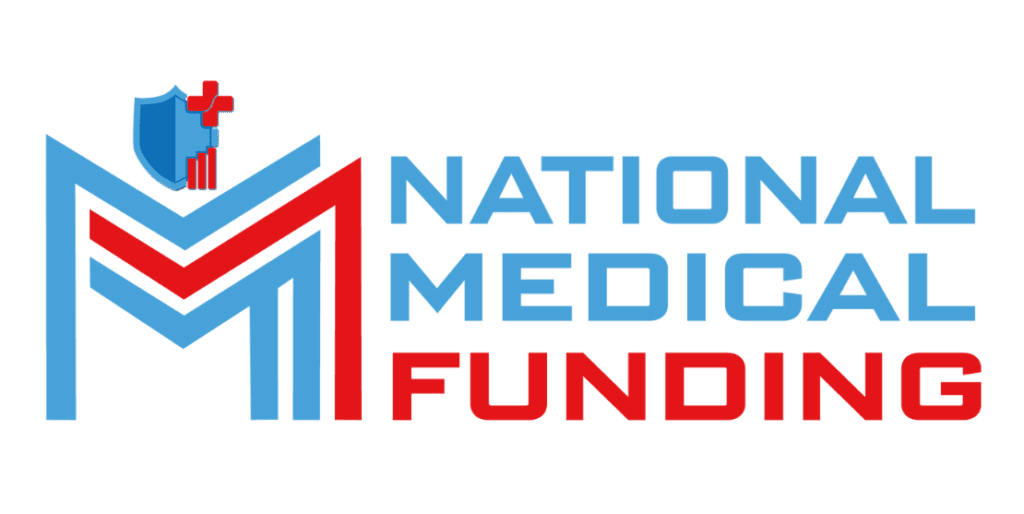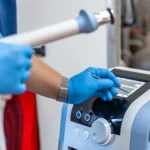
The Renovation Roadmap: How to Finance a Pati
A Fresh Start: Why Your Practice’s Design Matters Mor...

Saturday and Sunday – CLOSED
support@nationalmedicalfunding.com



Starting your own medical practice is exciting. But it is also expensive. From renting space to purchasing medical equipment and hiring your first staff, costs can add up quickly. That’s why it’s important to find secure medical financing from the beginning.
A good loan can help you cover those first big costs and get your practice off to a healthy start. The goal isn’t just to get approved – it’s to find the right loan that supports your long-term success. This checklist will help you understand each step so you can feel confident when applying.
Before you even think about talking to a lender, take a deep breath and figure out what real numbers you need. This is an important step! Many new practice owners simply estimate a number – and they often go too far, asking for either too much or too little.
Your first task is to make a complete list of every major expense. Think about bigger things:
office rent
Medical equipment (that fancy ultrasound!)
patient record software
Insurance
employees salary
spreading the word (marketing)
Once you have that solid total amount, you’ll be ready to consider different medical financing options. For example, if you need to cover the first few months of bills, a short-term loan may be right. But if you’re building a brand new clinic, you’ll probably need a long-term loan.
The bottom line? The clearer you are about your exact needs, the easier and faster the entire process will be.
If you’re planning to grow your team, check out this guide on how working capital loans help you hire top medical talent. It explains how the right funding can help you bring in skilled professionals and manage payroll easily.
Your credit score plays a big role in your loan approval. Lenders use it to see how reliable you are with money. Before applying for medical practice startup loans, check both your personal and business credit reports.
If your score isn’t great, don’t worry. There are simple ways to improve it. Pay off small debts, correct any errors, and avoid new credit cards right before you apply. Even small changes can improve your chances of getting better loan terms.
You don’t need a fancy plan, but you do need a clear one. Lenders want to see that you have a plan for success. Your business plan should include what kind of practice you’re opening, what services you’ll offer, who your patients will be, and how you expect to earn revenue.
Add a simple financial section that shows your expected income and expenses. Include how you plan to repay the loan. When lenders see you’ve thought things through, they’ll trust that their money is in good hands.

There isn’t just one kind of medical loan. Each type has its own benefits. Understanding your options will help you choose wisely.
Here are a few common choices:
If you’re thinking about redesigning your office, this article on financing a patient-friendly practice redesign is worth a read. It shows how term loans can help you create a more welcoming, modern space for patients.
Lenders will ask for proof that you can manage a loan. Having your documents ready makes a great impression and saves time. Here’s what you’ll usually need:
Keep everything organized in a folder or a shared drive. Being ready shows that you’re serious and professional. It can also make the approval process much faster.
Some loans require you to back them with assets, known as collateral. That could be your medical equipment, property, or even savings. It’s a way for lenders to feel secure.
If you don’t want to use your practice’s assets, you can explore asset-based lending. It allows you to use personal holdings more strategically. For example, this guide on utilizing personal holdings for practice funding explains how doctors can access funding without putting their business at risk.
Understanding these options helps you make smarter financial choices from the start.
Lenders are not all created equal. Some people are more knowledgeable about healthcare than others. Instead of just a general business lender, you want a partner who understands how medical practices operate.
Examine interest rates, terms of repayment, costs, and customer service. While some lenders adhere to set monthly plans, others provide flexible payment schedules. Specialised healthcare lenders frequently provide more individualised plans and expedite loan approval.
Your first loan experience can be less stressful and more seamless if you choose a partner who is knowledgeable about secure medical financing.
Know exactly how you’ll pay back a loan before you accept it. Make a basic monthly budget that accounts for your savings, business expenses, and loan payments. In this manner, you won’t be surprised later.
Aim to budget a little bit more each month for unforeseen expenses. Early planning practices almost never have repayment issues. Maintaining organisation also improves your credit for upcoming loans or expansions.

The same mistakes are frequently made by first-time borrowers. They undervalue the amount of money they’ll require or apply for the incorrect kind of loan. Some people omit minor details from their documents.
By taking your time and doing your research, you can steer clear of these issues. In case something is unclear, ask questions. Before you sign, carefully go over each loan document. You can avoid a great deal of stress later by exercising a little patience now.
Celebrate when your loan is approved, but don’t lose focus. Use your money wisely. Start with requirements: personnel, software, and equipment. These expenses will improve patient satisfaction and the efficiency of your practice.
Keep monthly records of your expenses and results. Examine what is effective and what needs modification. Many thriving clinics use their seed loan to get up to speed, giving them access to additional funding when they are ready to grow.
The medical industry is distinct. You deal with patient care, insurance billing, and regulations, all of which call for a distinct level of knowledge. Working with lenders who understand healthcare can therefore have a significant impact.
National Medical Funding and other healthcare lenders are familiar with the challenges that medical practices face on a daily basis. They can assist you in locating medical financing options that fit your objectives for growth and cash flow. This type of collaboration can facilitate and expedite your funding process.
Here’s a quick recap of everything we covered:
If you follow these steps, you’ll have a strong chance of securing your first medical loan without unnecessary stress.
Opening your own practice is one of the biggest steps you’ll ever take as a medical professional. With the right funding, you can create a place where patients feel cared for and your staff feels supported.
Getting a loan might seem intimidating at first, but it doesn’t have to be. When you follow a clear plan, gather the right information, and work with the right partner, the process becomes simple and even rewarding.
Whether you’re applying for medical practice startup loans or expanding an existing clinic, the right financing can turn your goals into reality. Take your time, stay organized, and build your dream practice with confidence.
A Fresh Start: Why Your Practice’s Design Matters Mor...
When it comes to managing a medical practice, one of th...

Fuel your medical practice’s growth with financial solutions tailored to your needs. We’re here to support independent practitioners and group practices with strategies built for success.


Mon Fri: 8:00am – 6:00pm
Saturday: Closed
Sunday: Closed
Copyright © 2025 National Medical Funding